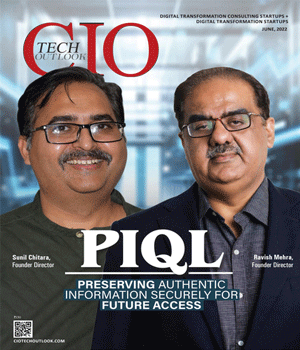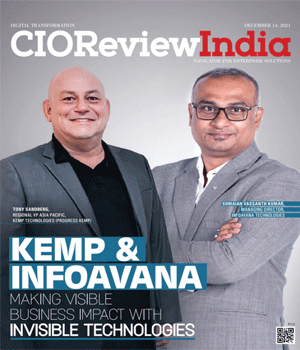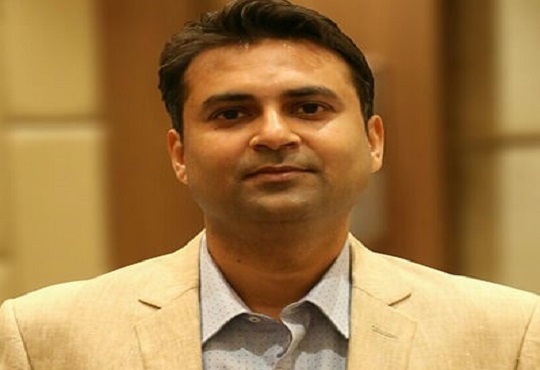
The Quantum Leap: Tapping the Potential of Quantum Computing
Janifha Evangeline, Assistant Editor, CIOTechOutlook | Sunday, 12 November 2023, 19:20 IST

In 2000, Robin Li, an Internet pioneer, established Baidu with the purpose of offering individuals the most efficient means of searching for information and connecting them with various services. At present, Baidu Research aims to become a top player globally in the Quantum AI domain and consistently incorporate appropriate quantum technologies into Baidu's primary operations.
Last year, the company introduced its inaugural quantum computer, named Qianshi, which showcased a processor consisting of 10 qubits. Additionally, the company claims to have successfully created a quantum chip with 36 qubits.
The quantum computing market size is anticipated to reach USD 6528.8 million by 2030. The utilization of quantum computing by institutions has the potential to assist mankind in tackling significant global challenges and achieving advancements in crucial domains ranging from pharmaceutical studies to worldwide agriculture and more.
However, how imminent is the future where quantum computing becomes common and how can data centers get ready for that anticipated future? Currently, a significant number of the applications of quantum computing are either in the experimental phase or exist only as hypotheses. This is primarily due to the fact that we are still in the initial phases of comprehending how to effectively execute quantum computing on a large scale. Nevertheless, as advancements in this technology occur, it is crucial for organizations not to overlook the potential ways in which they can utilize it.
Potential uses for quantum computing
Traditional computing operates within a binary realm, restricting both the amount of data it can manage and the choices it can generate. This is also referred to as sequential processing. However, quantum computing employs multidimensional processing techniques.
Serial processing examines each combination of the data individually until it arrives at the accurate outcome. Multidimensional processing is structured in layers, unlike the binary method of serial processing which utilizes bits. This speed up the process of calculations and improves their accuracy, while also enriching the range of possible outcomes. To put it briefly, quantum computing has the potential to provide faster and higher-quality outcomes.
AI/ML and Financial modelling
AI and ML have immense potential in terms of their ability to simultaneously compute solutions to problems rather than doing it in a sequential manner. In the present day, organizations employ artificial intelligence and machine learning to uncover methods for automating and enhancing task performance. Optimization can occur at a significantly faster pace and on a large scale when quantum computing is employed, particularly when dealing with extensive and intricate big data sets, even if they lack a specific organization.
Cirq is an open-source framework developed by Google specifically for the creation of innovative quantum algorithms tailored to near-term quantum computers.
In addition, Google revealed a collaboration with the University of Chicago and the University of Tokyo in the field of quantum computing, in order to drive progress in building a fault-tolerant quantum computer.
Financial organizations could employ quantum computing's modeling capabilities to enhance their ability to analyze investments and securities on a large scale. This has the potential to decrease risk, fine-tune extensive portfolios, and enhance financial organizations' comprehension of global financial economy patterns and shifts.
“What we use today as an encryption tool can be very easily broken using quantum computing,” says Srikumar Ramanathan, Chief Solutions Officer, Mphasis. “Therefore, every financial transaction, including governmental transactions need the kind of encryption that quantum computing cannot break,” he says.
Cyber Security and Route & traffic Optimization:
The privacy and encryption domains could be directly affected by the advancements of quantum computing. Due to the ever-changing character of cybersecurity threats, quantum computers have the potential to ensure that data remains encrypted even during use, offering protection for both data in motion and data at rest.
Atos excels in the fields of cybersecurity, cloud services, and high performance computing. The Quantum Learning Machine (QLM) solution is a powerful programming development platform and the most advanced quantum simulator globally. It significantly improves and speeds up research initiatives in various fields, granting customers unmatched abilities to explore and create quantum solutions.
Efficient supply chain logistics and transportation heavily rely on finding the best route planning. The most significant obstacle lies in effectively utilizing the vast amount of up-to-date information, ranging from unpredictable weather conditions to traffic movement, that impacts this planning process.
Prototyping and testing can be carried out with higher precision and realism using quantum computers. Within the realm of manufacturing, this can potentially lead to a decrease in prototyping expenses and yield improved designs that necessitate less rigorous testing.
In the beginning of this year, Intel declared the launch of its most recent quantum research chip named Tunnel Falls. This silicon chip consists of 12 qubits, and Intel has revealed that it plans to provide access to this chip for the quantum research community.
“Corporates have played around with pure play quantum algorithms on pure play native quantum chips," said Markus Pflitsch, founder, chairman and CEO of quantum tech provider Terra Quantum. “Now, they are really interested in: how do I enhance business performance with this stuff?" he adds.
Batteries & Drug and Chemical Research
Quantum computers have the capability to generate enhanced models that depict the interaction of atoms, ultimately resulting in a heightened and exact comprehension of molecular structure. Drug and chemical research could be directly influenced, leading to potential changes in the development of new products and medicines. Quantum computers' ability to make accurate predictions could also offer insight into the development, evolution, and interaction of chemical compounds and drugs with other elements in the course of time.
Prabhakar Anil, Professor, Department of Electrical Engineering, IIT Madras, notes that these technologies can transform drug discovery. “If you want to design a new drug molecule, you have to simulate the quantum mechanics of it which is easier to do on a quantum computer,” he says.
The utilization of quantum computing has potential to enhance manufacturers' comprehension of the integration of novel substances, such as batteries and semiconductors, into their products. This information could offer further understanding on ways to enhance the durability and effectiveness of batteries. Manufacturers can also enhance their understanding of lithium compounds and battery chemistry with the aid of quantum computing. To illustrate, quantum computing has the potential to explore and comprehend the mechanism behind the docking energy of proteins, ultimately leading to enhanced batteries for electric cars.
An encouraging future lies ahead with the incorporation of quantum computing, as it enables us to solve humanity's most daunting challenges at an accelerated, more effective, precise, and extensive level. The actual query lies in determining the point in time when we will achieve that future, while we devote efforts to improve and expand our existing abilities in quantum technology.
CIO Viewpoint
The Constantly Evolving Technology Landscape in...
By Janifha Evangeline
Navigating the Digitalization of Mining Industry
By Janifha Evangeline
How To Achieve An Effective Digital Transformation
By Yogendra Singh, Head-IT/SAP, Barista Coffee Company Limited
CXO Insights
No-code platforms: Enterprise-wide Adoption...
By Rahul Murthi, Director at Acies
Unleashing the Potential of IT in Engineering...
By Gyan Pandey, Head - Digital/CDO, Voltas
Low Code and Artificial Intelligence - The...



.jpg)

.jpg)





